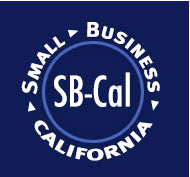Please see below impact on communities of how independent businesses recirculate revenues back into the community versus their chain competitors.
Highlight-Nationwide local retailers and restaurants recirculate 52.3% of revenue, while chains recirculate 15.8%. Thank you Hut for sending your newsletter
I just received the American Academy of Actuaries magazine Contingencies which provided data on the impact of the Affordable Care Act on health insurance premiums. According to their analysis ACA premiums for people 20 to 29 will go up 42% assuming no subsidies, 31% for people 30 to 39 assuming no subsidies and 1% for people 60 to 64 assuming no subsidies. These are individual polices. The increases for 40 to 49 are about 14%assuming no subsidies and about 4%.for those 50 to 59 assuming no subsidies. If you want the full report please let me know as I don’t send attachments on this email. Thank you David Burton at the National Small Business Association for sending
Scott Hauge
President
Small Business California
2311 Taraval Street
San Francisco, CA 94116
shauge@cal-insure.com
415-680-2188
===============
Indie Impact National Summary: Indies Give Back Over Three Times as Much as Chains
By Dave Grogan on Thursday, Jan 17, 2013
Communities as different as Las Vegas, New Mexico, and Louisville, Kentucky, have at least one thing in common: Their independent businesses recirculate a substantially greater proportion of their revenues back into the local economy than do their chain competitors. This, according to a national study, The Indie Impact Study Series: National Summary Report, a summary of 10 localized studies conducted by Civic Economics, in partnership with the American Booksellers Association, over an 11-month period from 2011 - 2012.
For the Indie Impact series, Civic Economics worked with small business organizations in 10 American communities to survey independent, storefront businesses engaged in the retail trade or food and beverage services.
As with previous studies in Austin, Chicago, San Francisco, Phoenix, Grand Rapids, and New Orleans, Civic Economics compared the recirculation of revenue in the local economy for participating independent businesses with that of major chain competitors. In total, 106 retailers and 28 restaurants answered the survey. Reports were compiled for each community, as well as an aggregated national study summary.
Among the national study’s findings:
• Nationwide, local retailers and restaurants for all completed surveys recirculate 52.3 percent of revenue locally, while chains recirculate just 15.8 percent. This means indies keep 3.3 times as much revenue in the local economy as do their chain competitors.
• Looking at just retailers, local businesses recirculate 47.7 percent of revenue locally, compared to 13.6 percent for chains, meaning indie retailers keep 3.5 times as much revenue in the local economy.
• Nationwide, by retail segment, sporting goods, book, and music stores combined recirculated 39.1 percent of revenues locally.
“Each Indie Impact study further drives home the point that we’ve been making for years that shopping at your local, independent retailer is better for the fiscal health of a community,” said ABA CEO Oren Teicher. “At a time when many cities and towns are faced with budgetary and job creation challenges, these figures simply provide yet another great reason for shopping local.”
For each study, Civic Economics asked local businesses to provide the proportion of revenue expended in five categories: Profits paid out to local owners; Wages paid to local workers; Procurement of goods and services for internal use; Procurement of local goods for resale; and Charitable giving within the community.
For chain competitors, the aggregate value of these was estimated from public records.
Northern California Independent Booksellers Association (NCIBA)
Presidio National Park
1007 General Kennedy Avenue
PO Box 29169
San Francisco, CA 94129
415-561-7686, 415-561-7685 (fax)
www.nciba.com
Subscribe to:
Post Comments (Atom)



No comments:
Post a Comment